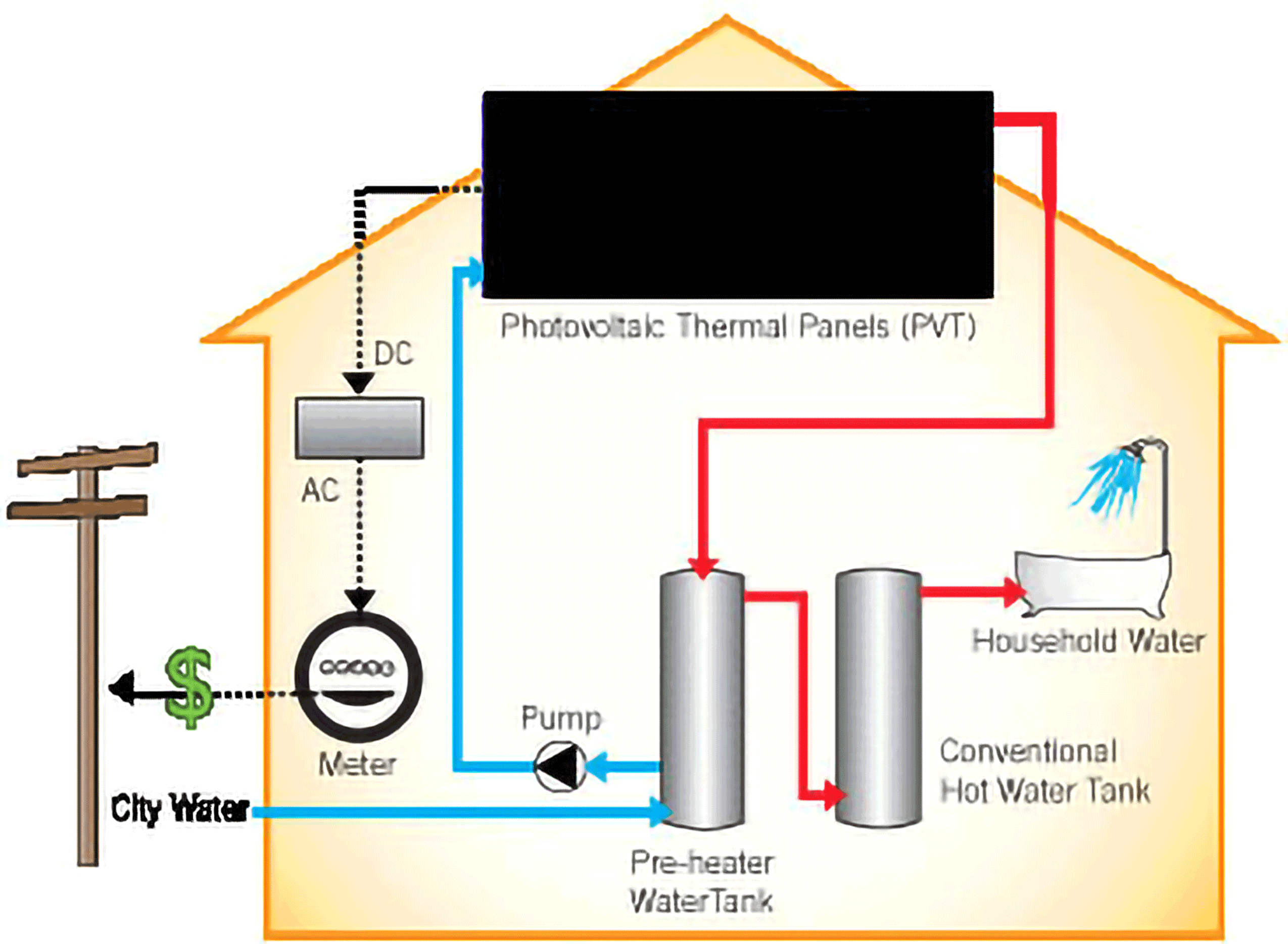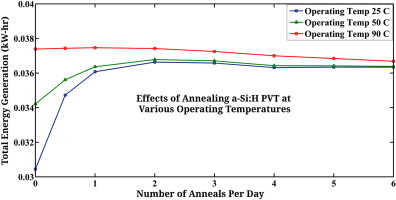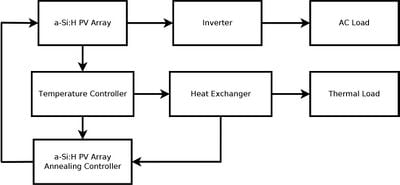Source

J. Rozario, A.H. Vora, S.K. Debnath, M.J.M. Pathak, J.M. Pearce, The effects of dispatch strategy on electrical performance of amorphous silicon-based solar photovoltaic-thermal systems, Renewable Energy 68, pp. 459–465 (2014). open access
Relevant Key Words
photovoltaic, solar thermal, PVT, amorphous silicon
Highlights

- Spike thermal annealing of hydrogenated amorphous silicon (a-Si:H) investigated.
- Annealing photovoltaic thermal (PVT) systems provides boost to electric output.
- During anneal PVT electric output reduced so optimum needed.
- Simulated dispatch strategies as a function of environment in the U.S.
- Results for all locations: spike thermal annealing once per day maximized output.
Abstract

Previous work has shown that high-temperature short-term spike thermal annealing of hydrogenated amorphous silicon (a-Si:H) photovoltaic thermal (PVT) systems results in higher electrical energy output. The relationship between temperature and performance of a-Si:H PVT is not simple as high temperatures during thermal annealing improves the immediate electrical performance following an anneal, but during the anneal it creates a marked drop in electrical performance. In addition, the power generation of a-Si:H PVT depends on both the environmental conditions and the Staebler–Wronski Effect kinetics. In order to improve the performance of a-Si:H PVT systems further, this paper reports on the effect of various dispatch strategies on system electrical performance. Utilizing experimental results from thermal annealing, an annealing model simulation for a-Si:H-based PVT was developed and applied to different cities in the U.S. to investigate potential geographic effects on the dispatch optimization of the overall electrical PVT systems performance and annual electrical yield. The results showed that spike thermal annealing once per day maximized the improved electrical energy generation.

